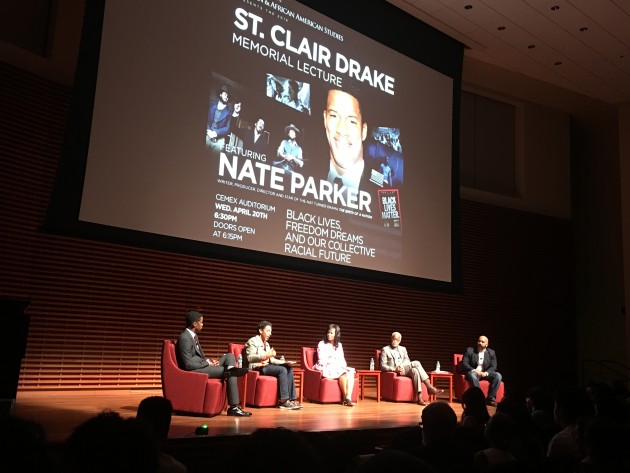“This film isn’t about endurance, or resilience. This film is about resistance.” Those are the words Nate Parker used to describe his film The Birth of a Nation, winner of both the Grand Jury Prize and Audience Award at Sundance.
During a stopover in Palo Alto, I took a side trip to Stanford where the African and African American Studies Department was hosting its annual St. Clair Drake Memorial Lecture.
The guest speaker was Nate Parker, first seen a few years ago with Denzel Washington in The Great Debaters. He came to screen his first full-length film and present his militant stance with strong and unequivocal statements.
Referring to the permanent “state of emergency” in America, he cited the murder of young Mike Brown in Ferguson, the prison system that disproportionately jails Blacks and concluded with his long-time hero, Nat Turner.
Nat Turner is the main character of The Birth of a Nation. His name may be relatively unknown in France but he is by no means a fictional character. This slave, a hero of the Black struggle, organized a slave uprising in 1831. Nate Turner’s film tells the story of that bloody uprising.
The title of the film deliberately echoes the D.W. Griffith movie, well-known for its depiction of the abject state of the racist ideology that flourished in the U.S. at that time. To ensure that his film would be seen by the greatest number of viewers, especially high school students, Nate Parker refused Netflix’s financially attractive offer to finally settle with Fox Searchlight.
Like most of those at the conference, I was impressed by the powerful presentation of this committed actor whose sharp reserve is more remiscent of media personalities.
Let’s hope this film will shake up the white consensus that has pervaded the Oscars for the past few years and obtain its due in the 2017 ceremonies.

